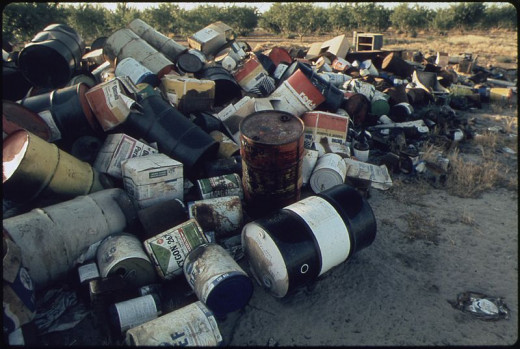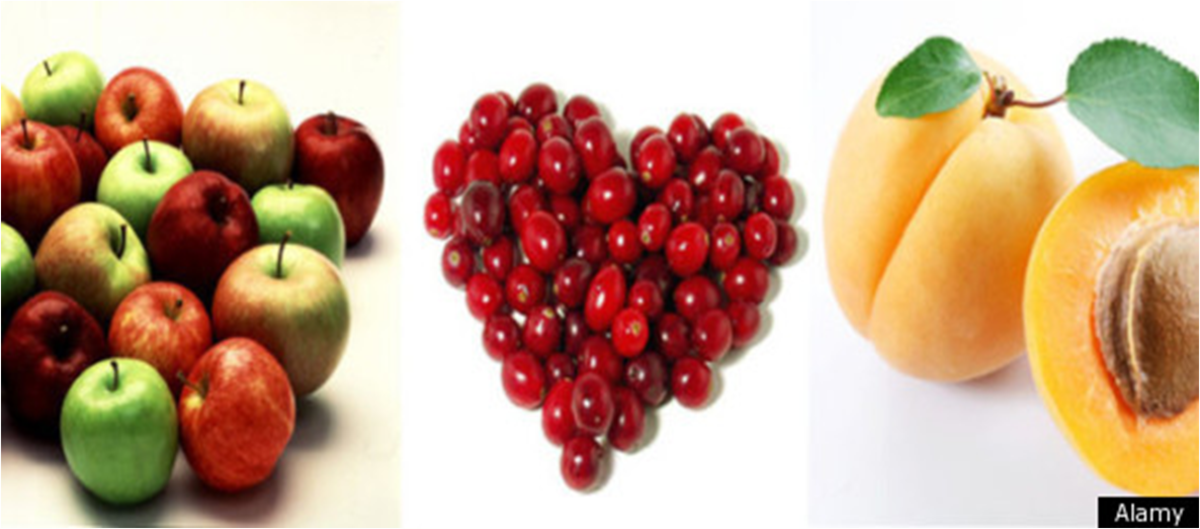Chemical Warfare
The Cheeseburger

Do You Eat and Drink?
If you do, you might want to study up on how the food business has restructured itself largely without our knowing. It is not the same anymore. It has changed dramatically, especially within the last two decades. For instance, the employment of sprays has gone completely berserk. Farmers do not weed their fields as they once did. They spray them. They do not even rotate crops. They use sprays to ward off root-rot. They spray with such ghastly venom that the soil requires genetically modified seeds for growth. The sprays are deadly. Birds in the wild die. Other animals suffer, too. Fish are full of chemicals. Livestock is fed corn that is not the same as it once was. Its seeds are patented. What are animals eating? What are we eating? Despite detailed labeling, the only honest answer is, dunno.
What's Up?

The Sky is Not Falling -- but Something's Up
This much is true. We do not see people keeling over in the street during lunch hour on the way back to the office or place of business. Also, over the years, disaster scenarios have much more often than not been proven poor predictors. The earth, if chemical farming becomes universal (which, at present, it is not), might simply make an adjustment. We live with dirty air, water, and land. But if people were more informed and had their say in the matter, I have the feeling that they would strenuously object to these ungodly, farming practices. Would they choose to purchase meats cut from sick animals, so unhealthy that they had to be treated throughout their lives with injections? Then again, maybe the FDA is perfectly trustworthy. However, very credible books, articles, and documentaries saying it is not are disturbing. Yet, isn't disturbing people the way these mass-market products are advertised in order to sell? Can what is being written and documented really be true? America cannot be that senseless. Right? Could it not be the case that the routine production of tainted food is another one of those inventions by talented, intellectual types, more meddlesome than anything else? If only . . . .
The Real vs. Imagined Environmental Protection Agency
Big government makes for big problems. Honest politicians, if there is such a thing, have been harping on this truism for years. Consider the EPA. Designed to protect the environment, in which we unfortunately reside, it has over time shifted its focus toward protecting big business rather than small people. Big business, in turn, seems to be making a fundamental error over and over again. It equates farming with industry, essentially demolishing all distinctions between the two enterprises. Those who have had the privilege to work within corporate America are familiar with CEO-level musical chairs. There are, or were, professional managers who enter one company after leaving another. They straighten them up, independent of an in-depth knowledge of what each company actually does: banking, manufacturing, stocks and bonds, real estate, or widgets. Since proof is in the pudding, it is hard to argue with so reckless a policy. CEOs did not have to know more than what was needed. Sometimes these Brahmins were hired to ruin companies instead of rescue them. Company assets, for instance, could be bundled up and sold off piecemeal. The parts were worth more than the whole. But they also successfully resurrected companies in deep voodoo, too. Nonetheless, farming is farming, to put it bluntly. Raising cattle is not the same as running a steel mill, for instance, differing only in the end result. As to the EPA's role in all this, it is difficult to ascertain. It is not unlawful to lack reverence for life. To raise second rate food and feed it to, in their minds, second rate citizens, is also not necessarily reprehensible. That is, as long as the consumer puts up with it.
It Looks Like Corn, Whatever it is.

How Does Your Garden Grow?

How Things Work
Corporations wanting to avoid scrutiny hire consulting firms with government contacts. Usually, they escape with a considerable and considerate donation to the Centers for Disease Control Foundation. Palms are greased. In other words, things work in such a fashion that they do not. Here is yet another challenge. Ingredients are divided into active and inert. The latter are free from testing, regardless of the damage done. If our health levels and in various cases lives were not involved, this aggravating business would make for a great video game. The truth is that the rules of the game, the real game, consisting of man tampering with nature, change over time. However poisonous, pesticides and fungicides are periodically rendered ineffective, requiring even stronger poisons. We now have a new kid on the block called super-weeds. It must not be so very difficult to win product approval, since hundreds upon hundreds of highly toxic sprays have managed to do just that, despite gross side effects. Organophosphates can ruin human nervous systems. Some workers are exposed to fatal poisons like parathion, which routinely kills oysters and striped bass. Other poisons that make their way into honey are responsible for Sudden Infant Death Syndrome. Birds that eat insects are in steep decline. All these ugly substances, for want of a more proper terminology, make their way up the food chain, so that no living creature's immune system is unthreatened. Protests against the use of sprays can result in a variety of punishments. Beekeepers can expect their entire hives to be directly sprayed, destroying their livelihoods. Not just America, but foreign countries as well, are undergoing the same homegrown, agri-terrorism. It does not matter that children sicken from sprayed crops in Japan. They are harvested anyway. The death of water buffaloes in the Nile Delta goes unremarked upon. The fact that pharmaceutical drugs are a permanent element in our drinking water is simply accepted. Aldicarb, another carcinogen, shows up in Wisconsin, Virginia, Maine, Florida, Georgia, and Oregon. How? All one can say is that chemicals truly make the rounds. Many poisons can live on for centuries in lakes. As rivers become useless, farmers dig deeper into aquifers, lower down. There is no way to tell without sophisticated equipment if fish sold in stores or served in restaurants contain cadmium, lead, mercury, or arsenic. This is how things work. Everybody concerned pitches in to enable an ongoing crime. If everyone contributes -- providers, distributors, and consumers -- then there can be no enforcement. Meanwhile, victims have learned the pragmatic coping skill of utter passivity.
Man v. Bug
Does man secretly harbor a deep, mental, psychopathic prejudice against insects? After all, this is actually the crux of the matter having to do with toxic sprays. Farmers grow crops, but without sprays, bugs take all. This puts both the farmer and consumer in a kind of vice. No one wants chemicals, but bugs are a dreadful nuisance. However, the fact is that many bugs achieve immunity to sprays. Monsanto plays the devil in every analysis, yet the overcritical must suggest a better, equally feasible alternative. Small farms are what is usually suggested. But can the future really just mimic the past? I can only wonder if the entire food chain is somehow out of whack. Why is farm country so buggy? Has it always been this way? What is going on in the insect world anyways? The book I am using points out that spraying almond trees disorients bees, who cannot find their way back to their respective hives. Have insects become stronger and more numerous than in times past? If not, why do potato sprays show up in well water while various communities almost anywhere now and then tango with a phenomenon known as chemical drift? Toxaphene, sprayed on cotton, can travel a thousand miles in the wind. It is unknown if the EPA will ever recover its original intent while many companies simply refuse compliance.
Admittedly, this is only one side of the story, though the other side does not readily cooperate when asked to reply.
Division Street, USA
The only Division Street I know of is in Chicago. It used to be the stomping ground of the novelist, Nelson Algren. It was full of the most colorful characters imaginable. Their stories were just begging to be told to a larger audience, not that readers were ever or are now a large collection hungering for the literary way to relate. But it seems that fiction in general is no longer the bright beacon of light it once was, attracting all the best minds. I could be wrong, but it is non-fiction, in particular current affairs, that illuminates the wide array of national interests. Among these topics, high up on the list, is our food stuff, for lack of a more defining term. The emergence of Whole Foods, a great commercial success, more or less makes the necessary statement. There are a number of other grocery stores also that are giving supermarkets a run for the money. The issue at hand has to do with the element of health in eating and drinking. Secondarily, there is the accompanying matter of prices since all things organic appear to cost more than standard products. But the upshot of the entire scene is the lack of a middle ground. Either one is for strict conditions when it comes to farming, or the opposite, laxity on behalf of corporate practices that can easily be called into question. Herein lies a new divide. May reason, common sense, and healthier measures be the final arbiter.
Disclaimer
Poison Spring by E. G. Vallianatos presents a very strong argument. I tend to give it as much credence as possible since I am in sympathy with its point of view. However, as mentioned above, nothing material comes from the other side. A deafening silence is all one encounters. U-Tube shows in several taped exhibitions how fields are sprayed and the machinery involved. Nothing to the eye looks amiss. Apparently, superfarms do not feel as though they have to justify their actions. Perhaps they are not as villainous as portrayed. It is just that the vaster amount of citizens do not have a large enough budget to experiment with the purer organic and studiously avoid adulterated GMOs. They are more at risk and literally cannot afford to fall ill. One hopes that more about this subject will come to light in the near future.
Some Things Never Change









